
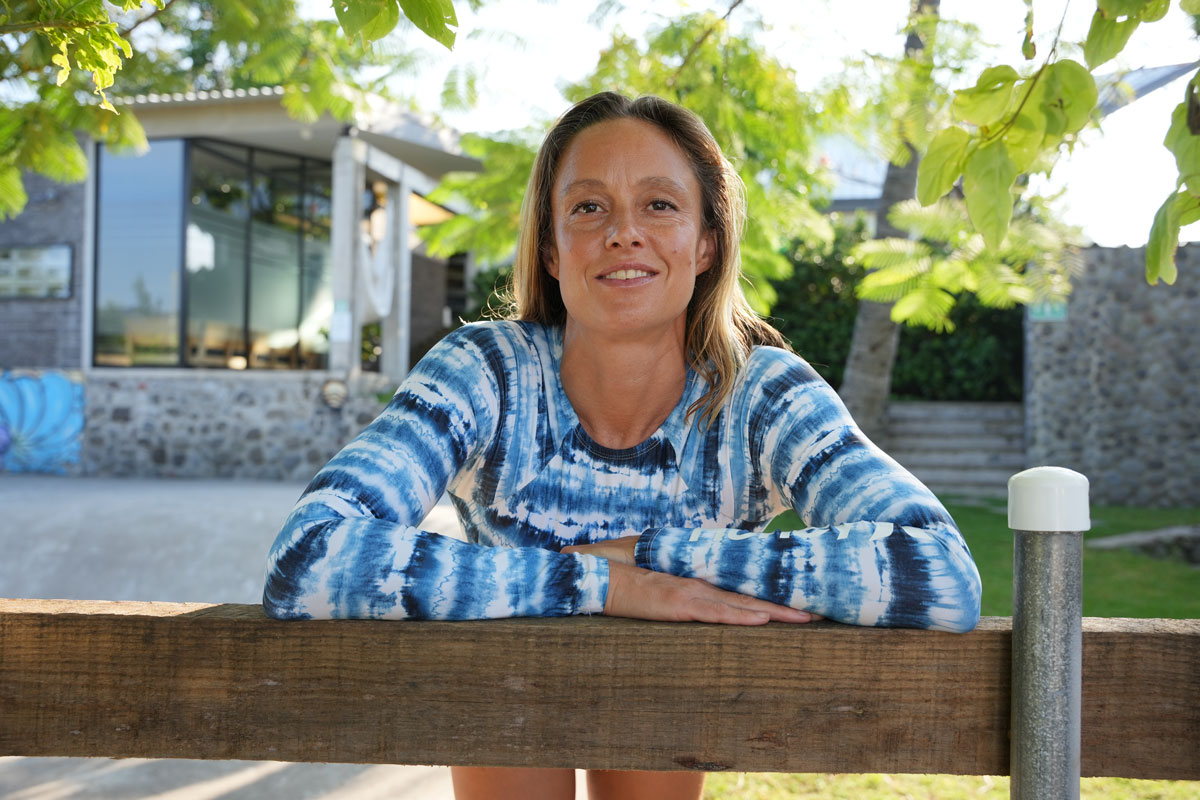

When the pandemic forced Maria Allebring to shut her restaurant down, she decided to put her energy into her ultimate dream instead … learning to surf! At 39 years old Maria hopped on a plane to Brazil to take on surfing and two years later competed in the Swedish Championships.
We spoke to Maria to get the low down on her journey, dedication to surfing and what’s required to go from learner to championship competitor in just two years.

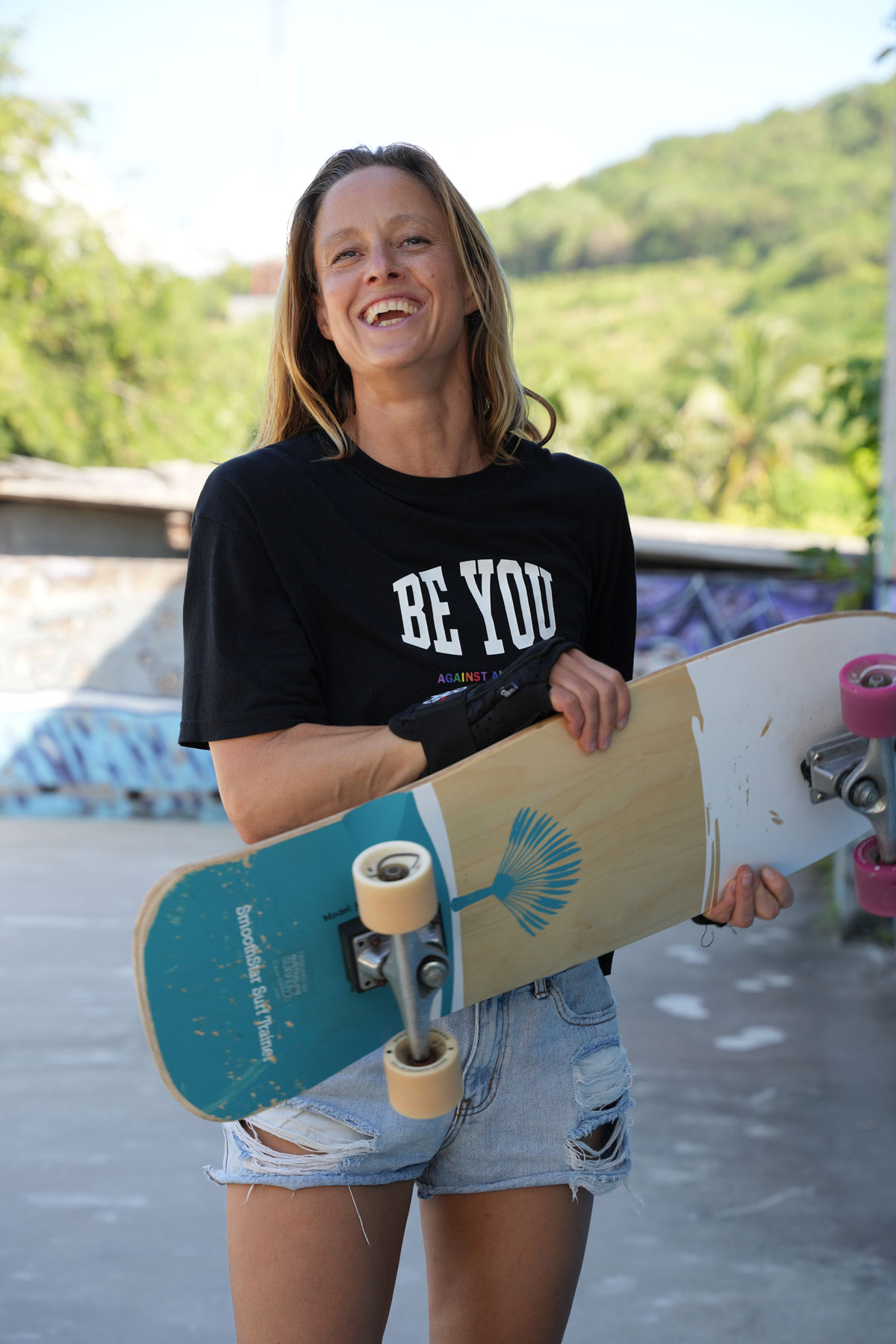
Two years ago you moved from Sweden to Brazil to learn to surf … why Brazil?
I originally wanted to go to Maui and have my cousin who is born and raised there teach me how to surf. But the US was closed to Europeans so I couldn’t go. Then a friend of mine who was in Brazil sent me a message asking if I wouldn’t join him. He was in Itacaré a small surf town, it looked beautiful and he told me it was a great place for beginner surfers. So I took his word for it, put all of my things in a storage and bought a one way ticket to Brazil.
When did you first get the surfing bug?
When I was a child I got to visit my cousin on Maui. He and his friends where all surfers and to me they where the coolest people on the planet and I wanted to be just like them. So that definitely planted a seed. Then it just took me 27 years to do something about it…haha!


What was the catalyst for changing everything and learning to surf instead?
For five years I had my own business in Sweden, poke bowl restaurants. It was very successful until the pandemic hit the world and I lost everything. It was a very stressful time and after I had shut down my last restaurant I put up a big sign saying ‘Gone surfing, never coming back’.
However I decided to turn the loss into an opportunity and fulfill my dream. I was finally going to become a surfer. I decide to give myself one year off and during that time I would surf and think about what I wanted to do next. Not in a billion years could I have imagined that two years later I would compete in the Swedish Championships.
What have you sacrificed for your surfing dream?
Security! It would have been much easier to just take another job or start another business. Living off your savings is scary because you know you are going to run out of them eventually. Another sacrifice is not being able to see my friends and family as much I would want to. Also not having a home, it’s not always fun to live out of a suitcase and a board bag. Sometimes I really miss having a home. But you can’t have it all and if you want to become really good at something you have to be very focused and you have to work really hard.
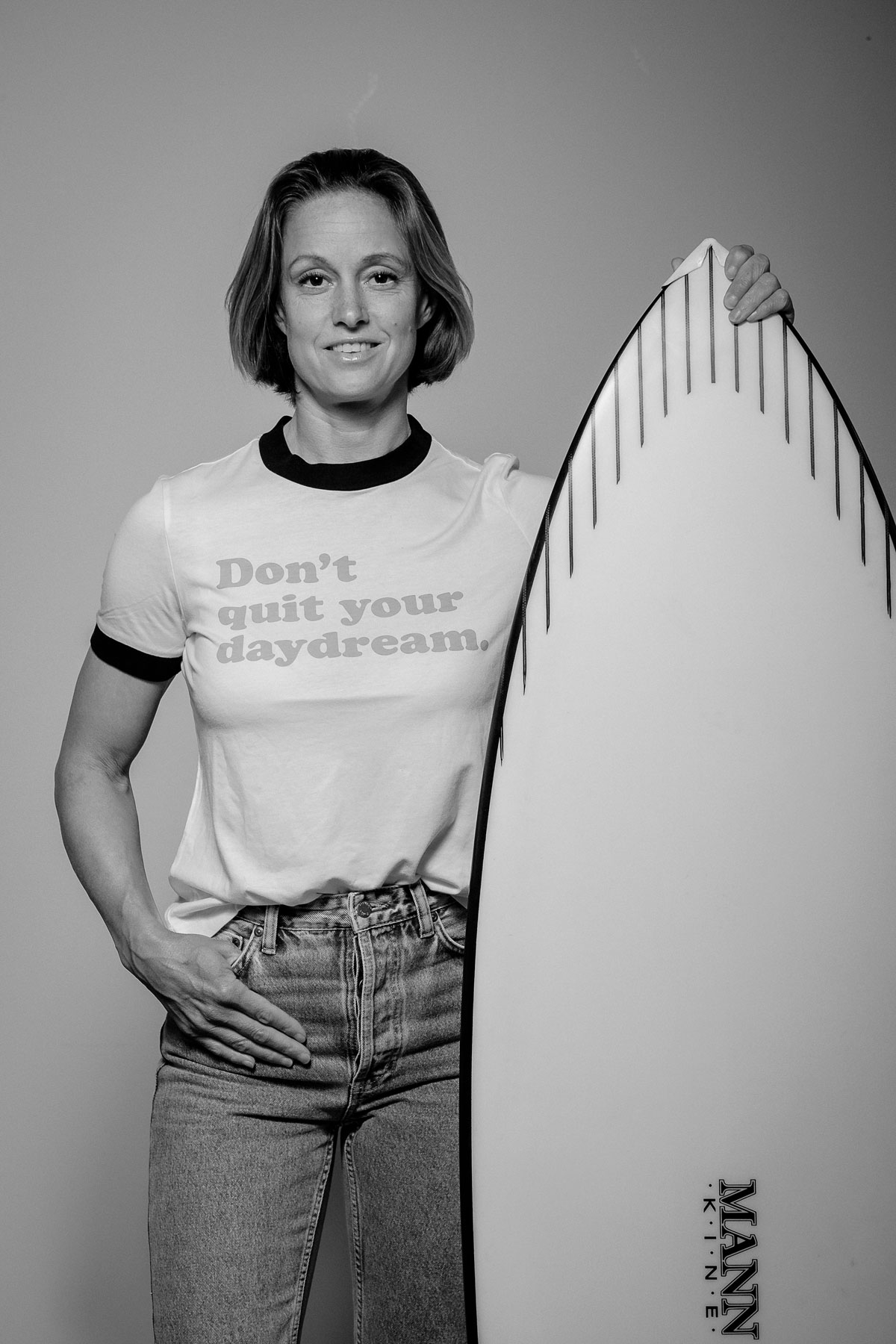
What’s your advice to women in their late 30s/40s+ who want to learn to surf?
First of all just do it! Don’t overthink it, find a good coach that will make sure that you are safe and just try it. And also there is no such thing as it being too late. It’s really helpful to get coaching and footage of yourself, so much of surfing is counter intuitive and a lot of the time we think we are doing one thing when we are actually doing something completely different. And be patient with yourself, surfing is not easy as the ocean always changes.
How much do you feel that age is a hinderance when you’re competing against younger competitors?
So far I don’t feel that the age has been a hindrance at all.
What is the ultimate goal with surfing?
I really want to see how far I can go. Like how good can I really get if I give it everything I have. I think I’ll keep doing that as long as I can and I still enjoy it.

“Be patient with yourself,
surfing is not easy as the ocean always changes.”

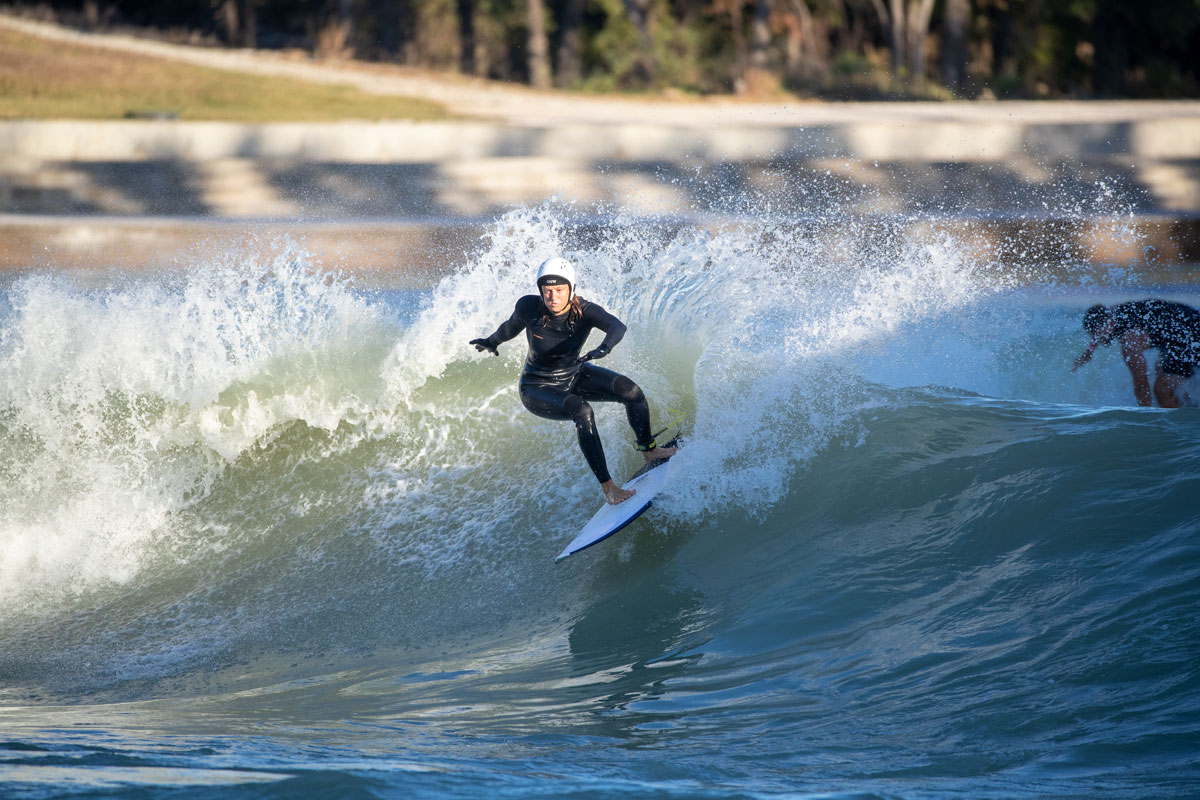
You have progressed insanely quickly in two years. What do you attribute to your success so far?
Thank you 🙂 I have had optimal circumstances. I have been able to surf with really good coaches, spend lots of time in the water and surfed quite a lot at Waco Surf. Plus I’m very focused and I train really, really hard.
You train hard with cardio and weights. Why is physical fitness so important?
After 30 you start loosing muscle mass and since I’m 42 it’s really important for me to lift weights to keep my muscles mass and be explosive. Cardio is important especially when surfing heats. 15- 25 min of sometimes constant paddling, performing on waves and duck diving requires a very high level of fitness. I also do apnea training (breath hold and training cardio under water) as it helps me get more confident when the waves are bigger

You do a lot of skateboarding as a form of training. How does skating assist with your surf progression?
I use the Map Tecnica method and I attribute a lot of my progression to them. It gives me the repetition that is really hard to get in the water. And they have a great system of biomechanics that really works.
Have wave pools been key with training?
100%, no way I had been able to progress this fast in the ocean. The amazing thing with wave pools is that it’s the same every time so you can focus entirely on your technique. If I had the money I would spend at least one week, each month, surfing in a pool.
Is mental strength as important as physical strength?
I think it’s more import actually. Because what you believe will influence your actions so much. For example if your rock up at the beach and it’s bigger than you are comfortable with but you have the skills to handle it. If you tell yourself you can do it you will probably do ok. But if you tell yourself you can’t do it you will go out with a negative mindset and most likely have an experience that matches your mindset. Another thing that I have learned working with my sports psychologist, who is amazing by the way, is the importance of being kind to oneself. To praise yourself for all the little successes and to be super patient with yourself. I’m still practicing that every day, it has made my journey so much more enjoyable and fun!
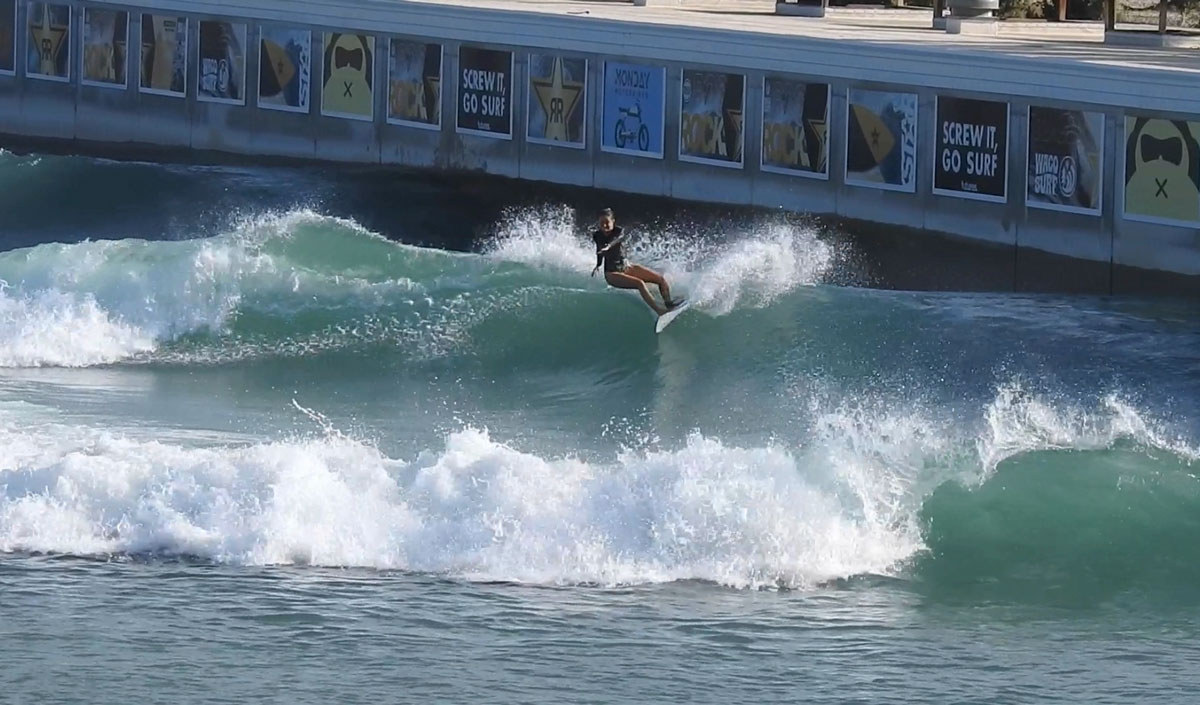


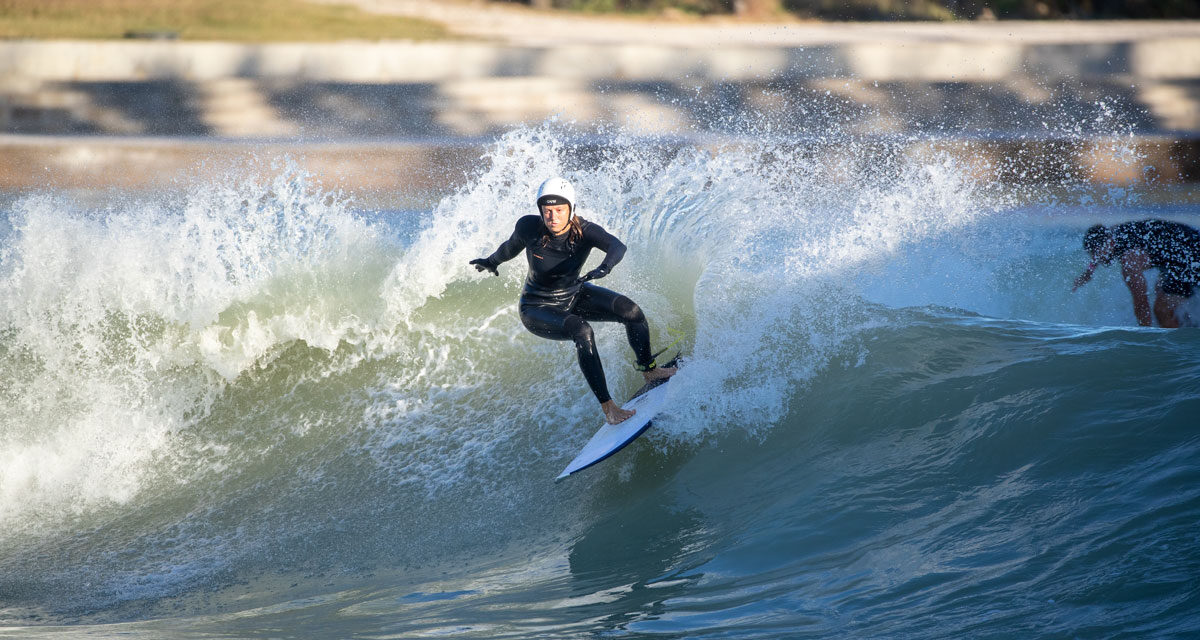
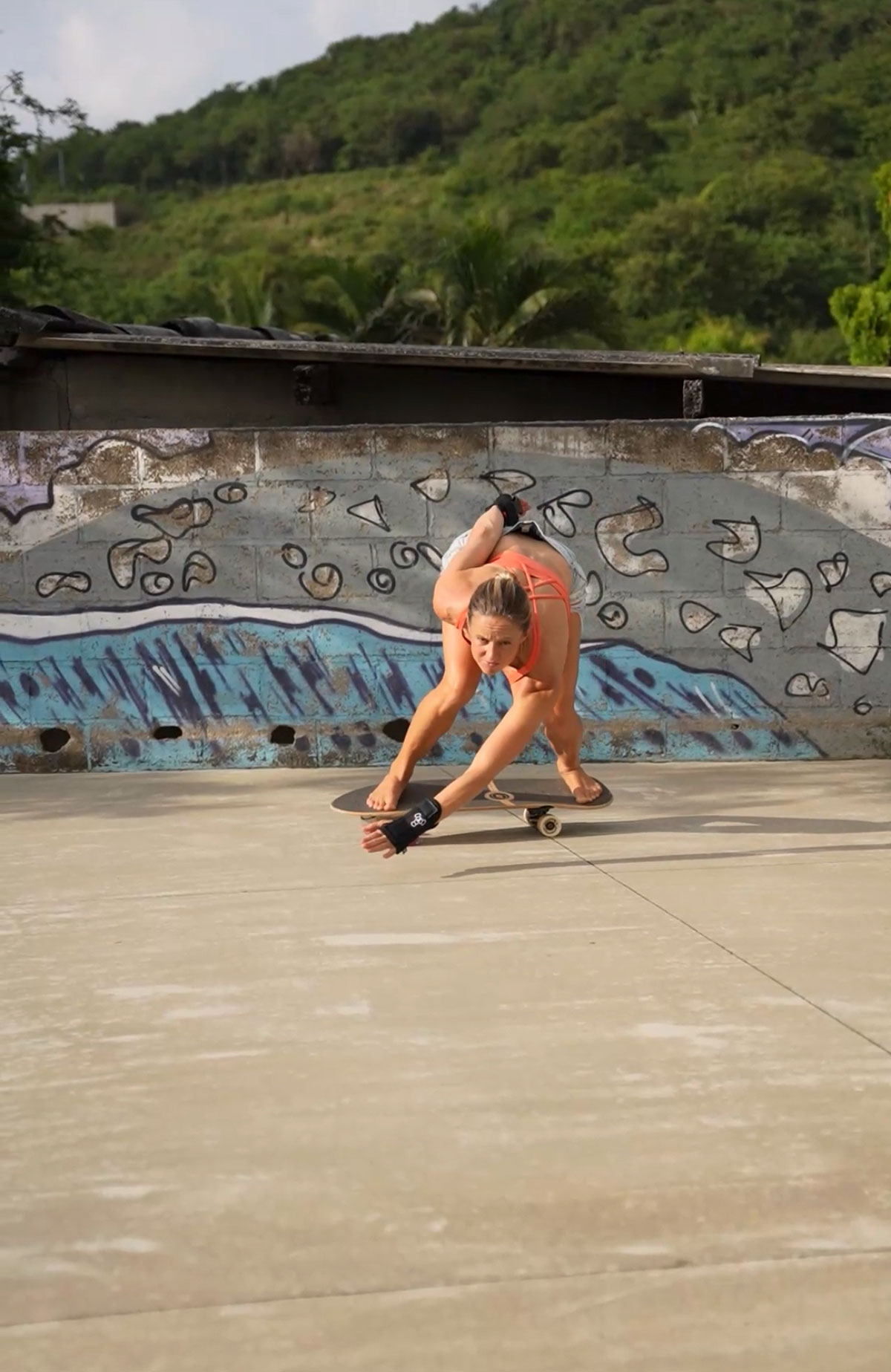



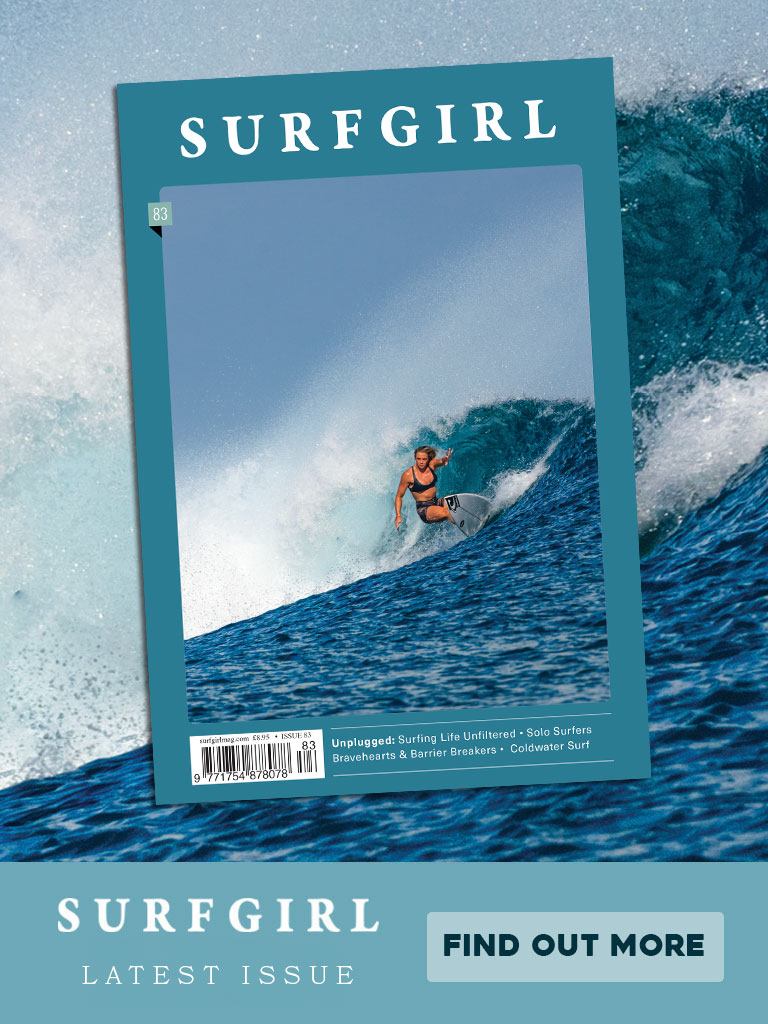
Fantastic. I started last year. I turned 60 this year. I’m lucky to be reasonably fit and flexible. I’m getting there but its very different to skateboarding which I was good at and did for years. Any improvement is a plus and I love being in the water anyway. Making use of surf pools too!!!!